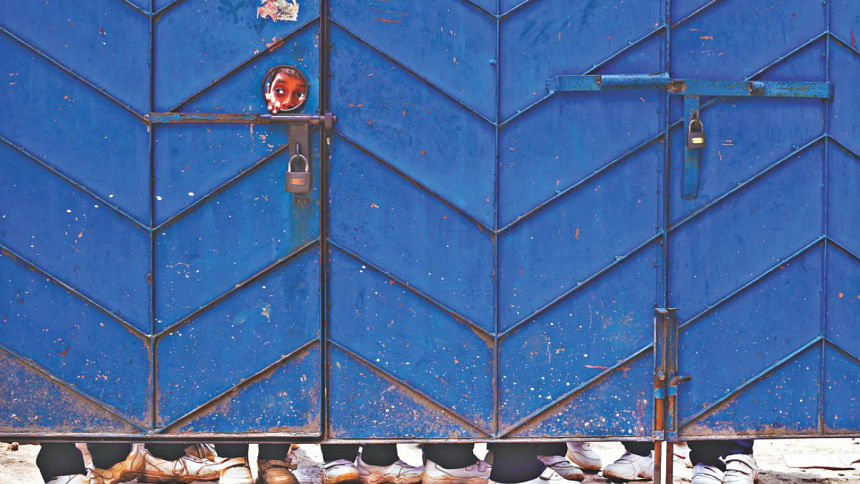How much is too much for the students?

With results being politicised and the scrutiny and shame that follows, a walkthrough in the life of a Bangladeshi student in the current decade is probably one of the most challenging and daunting tasks that exists. Competition is stiff, and so the constant fear of not achieving high rankings at institutions is instilled among students by parents and schools alike.
While most parents and institutions think it's fair to expect every student to perform spectacularly at school in all respects, do we ever stop to wonder the sheer amount of burden and pressure it puts on a child?
"I've never felt that my school is a safe space for me to voice my opinions. Whenever I stood up for myself for being wrongfully accused of something, I've been silenced," says Sreya Dutta*, student at an all-girls school in Dhaka. The subcontinent's custom of respecting elders is often used as a trump card over students to prevent them from voicing their opinions. As a result, it registers in the students' mind that voicing opinions means disrespect and thus, bruises their self-confidence.
"A teacher tried to pressure me into attending her coaching by purposefully reducing marks from my exam script. When I asked her where I went wrong the teacher scolded me saying I shouldn't question her," says Ali Mashraf, now a student of Dhaka University, speaking of an incident about his former school, "I have also been coerced to attend coaching centres by teachers in the fear of receiving lower scores in tests." It's shameful that such incidents should occur in a school, where teachers are supposed to build and not break a child's confidence and notlure them for monetary gains.
Parents play a huge role to safeguard their child from such harassments. However, due to the fear that their child is lagging behind in class, the blame shifts on the child. Even when a child is second in class, they are told to be the first. Putting such a big burden on the shoulder of a child pushes them to evaluate their self-worth on what results they bring and whether that makes their parents happy. Failing to do so often pushes a child spirallinginto frustration and despair.
"I wasn't the best performer in class. I struggled with some subjects and dreaded every result season as my parents asked for an explanation and I couldn't tell them anything as I knew they wouldn't believe I tried. It was depressing," says Nayna Khan*, coming from an English medium background.
As for parent-teacher conferences, Sreya also mentions, "My school does have parent-teacher meetings, however it's often one-sided where teachers report the parents on the disobedience of the students. No actual assessment on individual students on their flaws and ways to improve on them are discussed."
Shukla Dey, Senior Teacher of Viqarunnisa Noon School & College says, "It's crucial to have conferences at school. However, an experienced counsellorusually plays the crucial role for these interactions." When asked about what a teacher's approach should be in a situation where a child acted poorly, she states, "The approach should never be harsh. In such circumstances, a teacher must consult the child in a private conversation and not embarrass them in front of the class." She adds, "Parents need to put themselves in the shoes of a child and not retort to accusations, but counsel them. As adults, we have a lot to learn and we must act as a support system for a child."
A student from national curriculum background, Sadid Rahman*, on what could be done to safeguard students comments, "A total administration reform – the same teachers who teach at an institution for 10 years or more tend to forget their actions have consequences." To that, Ali Mashraf adds, "Authorities need to chalk up a code of conduct for teachers and abide by it strictly, no matter what. Counselling sessions are a must." A lack of oversight in how educational institutions are run has been observed in the uncovering of corruption scandals that have taken place in the recent past. But what that lack of oversight means to how students are treated is a subject that is wholly passed over until something truly tragic takes place.
If proper actions are not taken by parents and authorities, we stand out as a society that puts mere performance over the mental health of a child, which is deplorable.
*Names have been changed to protect the privacy of the individuals

 For all latest news, follow The Daily Star's Google News channel.
For all latest news, follow The Daily Star's Google News channel. 



Comments